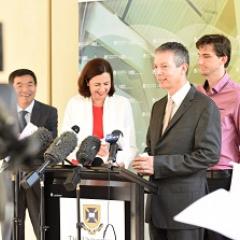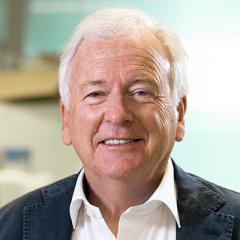The University of Queensland has launched a world-first clinical trial to determine the exact amount of exercise that can reverse the effects of ageing on the brain.
The trial will monitor 300 people aged 65 and older to determine the “sweet spot” – the amount, intensity, and type of exercise that leads to cognitive improvement in the ageing brain.
Queensland Brain Institute’s Professor Perry Bartlett is leading the trial – a first for QBI’s Clem Jones Centre for Ageing Dementia Research.
“After decades of research, we’re in a position to determine what exercise and how much exercise can keep our brains nimble,” Professor Bartlett said.
“This will be the most comprehensive analysis yet of why exercise is beneficial, identifying the underlying mechanisms in the body, and taking advantage of UQ’s world-leading imaging and research capabilities.
“Ultimately, we would hope to have clear public health guidelines as to how exercise can both prevent and reverse dementia.”
The clinical trial is a collaboration with the UQ School of Human Movement and Nutrition Sciences and the UQ Centre for Advanced Imaging and is funded by a $2.1 million donation from the Stafford Fox Medical Research Foundation.
Exercise increases production of new brain cells
“QBI researchers were the first to discover that the brain contains stem cells which are capable of making new neurons. But we have also learned that as we age, these stem cells lose their ability to produce new neurons and our cognitive functions begin to decline,” Professor Bartlett said.
“Excitingly, exercise has been able to increase production of new brain cells and improve learning and memory.”
Researchers are now recruiting 300 healthy people aged 65-85 who are willing to be closely monitored as they exercise on UQ gym equipment three times a week for six months.
Volunteers will have fitness tests, cognitive function testing, MRI scans and provide blood samples.
“We’ll also be measuring changes in the volume of participant’s brains, and in the brain’s connectivity – how regions of the brain communicate with one another – to better understand the process,” Professor Bartlett said.
To register for the clinical trial, contact healthybrains@uq.edu.au or visit the exercise study web page.






